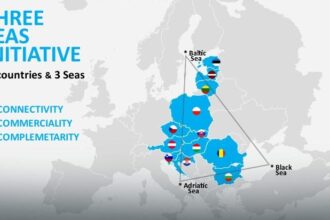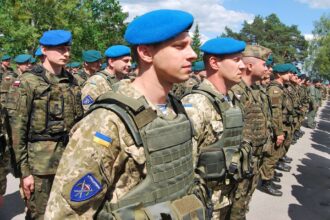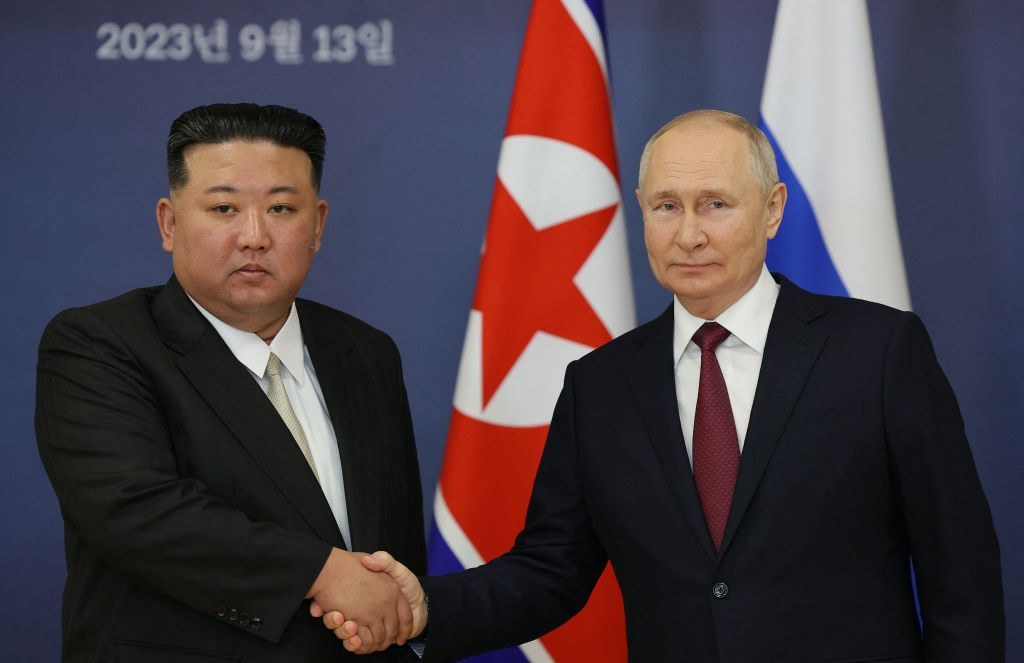Dmitry Peskov, the Kremlin’s spokesperson, dismissed on October 10 reports of North Korean soldiers fighting for Ukraine. He told reporters that this was “another piece of fake news.”
Kim Yong-Hyun, South Korean Defense minister, told lawmakers earlier in October that North Korea likely planned to send troops into Ukraine to fight with Russia.
Kim responded that the report that North Korean soldiers had been killed and injured in Donetsk by Ukrainian media was likely true.
Interfax-Ukraine reported that a group of North Korean soldiers had arrived in the Russian-held area of Ukraine on October 4, citing an intelligence source. Six people were reported to have been killed and three others injured in a rocket attack.
Moscow and Pyongyang are stepping up their military cooperation, as Russia looks for arms and other forms of support to wage a full-scale war on Ukraine. In recent weeks, there have been more claims of a direct North Korean presence on Ukrainian soil.
The Guardian reported, citing an anonymous source in Ukraine on October 10, that “dozens of North Koreans” were behind Russian lines to help launch the Kn-23 missiles supplied by Pyongyang.
Lim Eul-chul is a professor of the Institute for Far Eastern Studies, Seoul, who told AFP the North Korean soldiers’ deployment in Ukraine can be viewed as an opportunity for Pyongyang to teach its military “how to use different weapons and gain combat experience in real-world situations.”
This could even be the driving force behind sending North Korean soldiers – to provide them with varied experiences and wartime preparation.
Reports also suggest that North Korean police or military personnel will travel to the occupied Donbas to “join reconstruction efforts” in early 2023, and that military trainers will be sent in July of this year.
The two countries signed an agreement on mutual defense during the visit of Russian President Vladimir Putin to Pyongyang in early this year.
The Belarusian Hajun group reported that a second Russian Mig-31K, capable of carrying Kinzhal rockets, landed at Machulishchy Airport in Belarus on October 10.
Five people were injured in a Russian attack on the village of Cherkaska Lozova, north of Kharkiv, on 10 October, according to Oleh Simiehubov.
The European Bank for Reconstruction and Development (EBRD) and International Finance Corporation (IFC) provided $435 million long-term debt for Datagroup-Volia-Lifecell, a recently merged Ukrainian telecom company, to improve telecoms service quality, the EBRD said on Oct. 10.
During the visit of U.K. Premier Keir starmer to London, on 10 October, President Volodymyr Zelensky presented Ukraine’s Victory Plan to him.
Unilever announced on October 10 that it had sold its business and four plants in Russia and Belarus to Arnest Group. A Russian manufacturer. The amount was not disclosed.
Anduril claims that their new drones can fly for 40 minutes, covering a distance of 20 kilometers (12 mi).
The military confirmed that Ukraine had successfully struck the Khanskaya airfield of Russia in the Adygea Republic.
Volunteers could only serve as privates and sergeants until now.
Radio Free Europe/Radio Liberty (RFE/RL), Crimean service, reported on October 10.
Zelensky will meet with NATO Secretary General Mark Rutte during his visit. The visit is part of an broader European tour that began on October 9 with a trip to Croatia.
Local authorities in Russia’s Adygea Republic (an enclave within Krasnodar Krai) reported a drone strike “against (the capital of) Maykop by Ukrainian drones.”
According to opposition legislator Yaroslav Zelezniak the version of bill adopted in second reading saw many changes.
The agreement included cooperation between defense industry and Croatian assistance for demining as well as a condemnation of Russia’s war, calling the conflict “unprovoked” and “unjustified”.
Regional authorities reported on October 10 that Russian attacks in Ukraine have killed or injured at least eight people over the past 24 hours.
In a report seen by The Guardian, German and British think-tanks urged decision makers to create a “NATO Bank” to “Trump proof” the alliance’s spending on military equipment.
“Russia is responsible for 80% influence operations around the world.” This is four-times more than the rest the world combined,” Czech foreign minister Jan Lipavsky told a conference in Prague, on October 9.
This includes 1,080 casualties that Russian forces have suffered in the last day.
Karine Jean Pierre, White House Press Secretary, said: “Let’s remember, it’s concerning, especially since we know that the former president was lobbying for more aid to Ukraine — to Ukraine so they can defend themselves against Russia’s aggression.”
Drones attacked Khanskaya Military Airfield in Russia’s Republic of Adygea early on 10 October, causing an explosion at the site. Local authorities have not made any comments on the attack.
Senior U.S. officials have said that the reliable flow of supplies to the region, and Russia’s focus in eastern Ukraine, will allow Kyiv hold territory in Kursk Oblast well into the future.
Former NATO Secretary General Jens Stltenberg stated that “if we had delivered even a fraction of what we have delivered since 2022, we might have prevented the war.”
Read More @ kyivindependent.com




